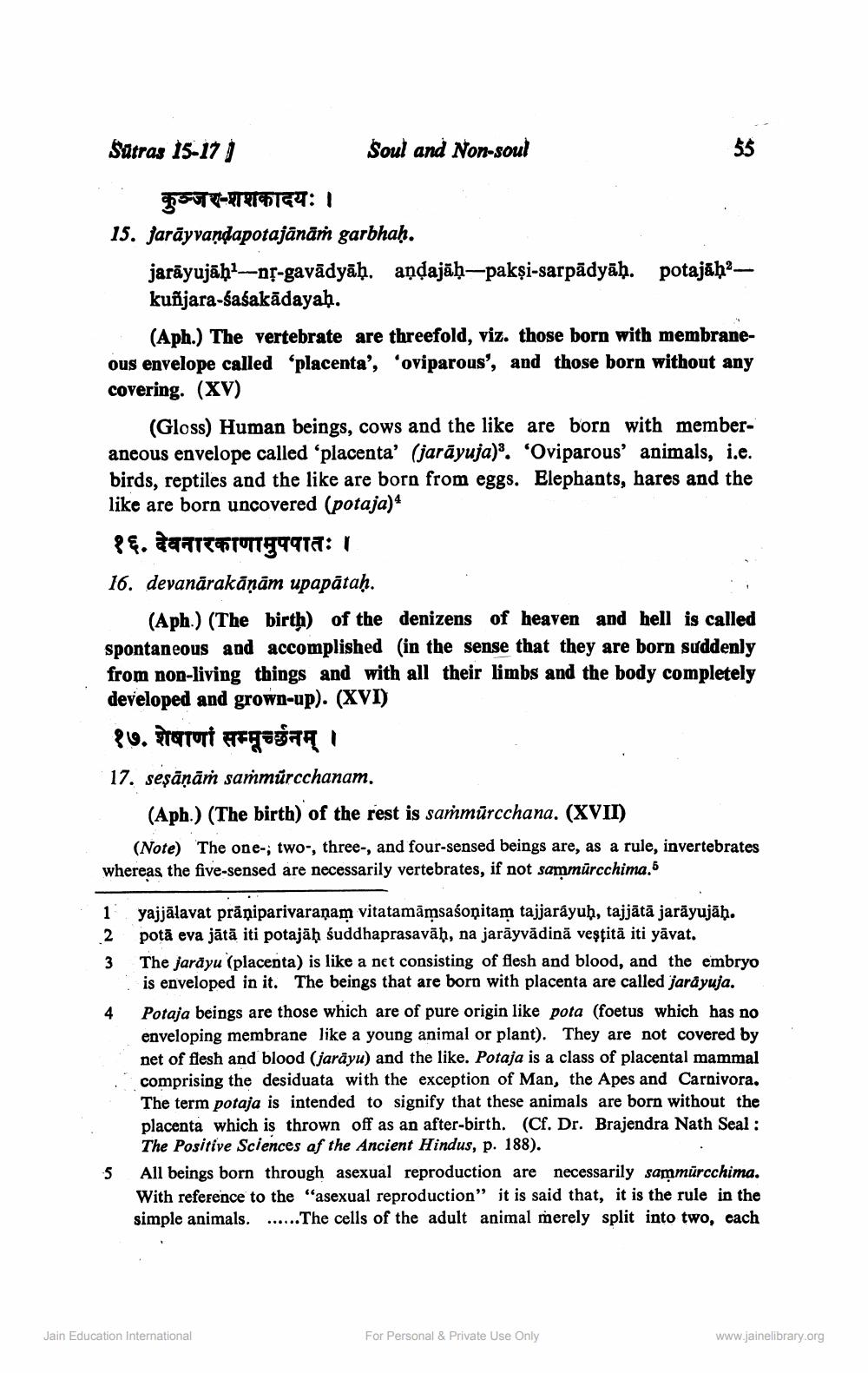________________
Sutras 15-17 1
कुञ्जर- शशकादयः ।
15. jarayvandapotajānāṁ garbhaḥ.
jarāyujāḥ1——nṛ-gavādyāḥ, aṇḍajāḥ-pakṣi-sarpādyāḥ. potajāḥ2kuñjara-saśakādayaḥ.
(Aph.) The vertebrate are threefold, viz. those born with membraneous envelope called 'placenta', 'oviparous', and those born without any covering. (XV)
Soul and Non-sout
(Gloss) Human beings, cows and the like are born with memberaneous envelope called 'placenta' (jarayuja). 'Oviparous' animals, i.e. birds, reptiles and the like are born from eggs. Elephants, hares and the like are born uncovered (potaja)
१६. देवनारकाणामुपपातः ।
1
2
3
16. devanārakāṇām upapātaḥ.
(Aph.) (The birth) of the denizens of heaven and hell is called spontaneous and accomplished (in the sense that they are born suddenly from non-living things and with all their limbs and the body completely developed and grown-up). (XVI)
१७. शेषाणां सम्मूर्च्छनम् ।
17. seṣāṇāṁ sammuṛcchanam.
(Aph.) (The birth) of the rest is sammurcchana. (XVII)
(Note) The one-, two-, three-, and four-sensed beings are, as a rule, invertebrates whereas the five-sensed are necessarily vertebrates, if not sammurcchima.5
4
55
-5
yajjālavat prāṇiparivaranam vitatamāmsaśoņitam tajjarāyuḥ, tajjātā jarāyujāḥ. potā eva jātā iti potajāḥ śuddhaprasavāḥ, na jarayvādinā veşţită iti yāvat.
The jarayu (placenta) is like a net consisting of flesh and blood, and the embryo is enveloped in it. The beings that are born with placenta are called jarāyuja.
Potaja beings are those which are of pure origin like pota (foetus which has no enveloping membrane like a young animal or plant). They are not covered by net of flesh and blood (jarayu) and the like. Potaja is a class of placental mammal comprising the desiduata with the exception of Man, the Apes and Carnivora. The term potaja is intended to signify that these animals are born without the placenta which is thrown off as an after-birth. (Cf. Dr. Brajendra Nath Seal: The Positive Sciences af the Ancient Hindus, p. 188).
Jain Education International
All beings born through asexual reproduction are necessarily sammūrcchima. With reference to the "asexual reproduction" it is said that, it is the rule in the simple animals. ......The cells of the adult animal merely split into two, each
For Personal & Private Use Only
www.jainelibrary.org




